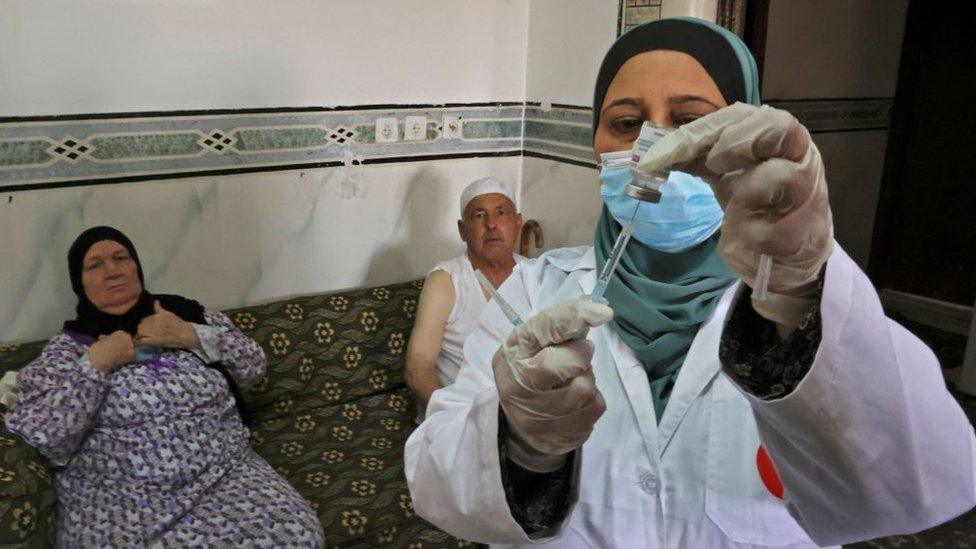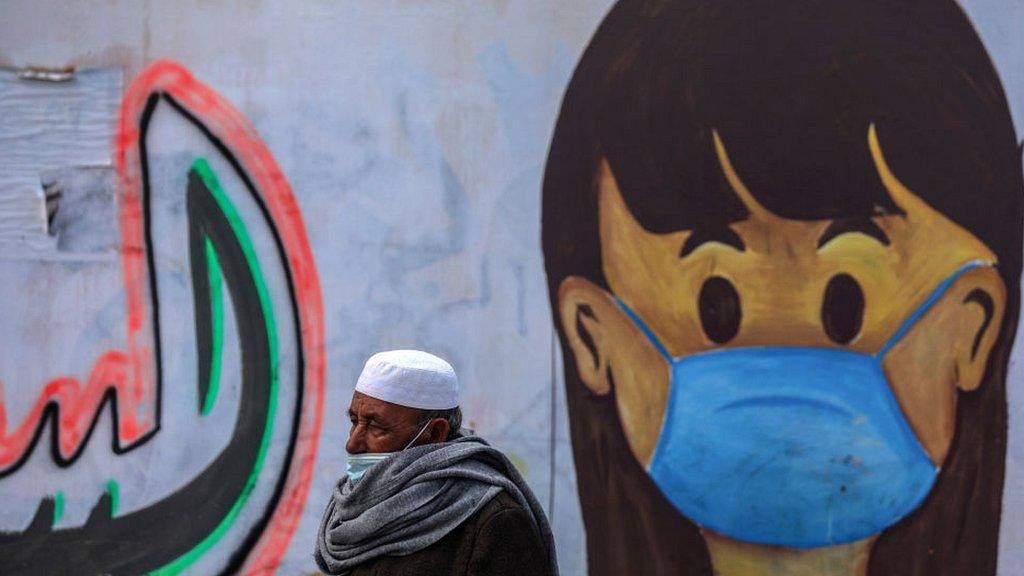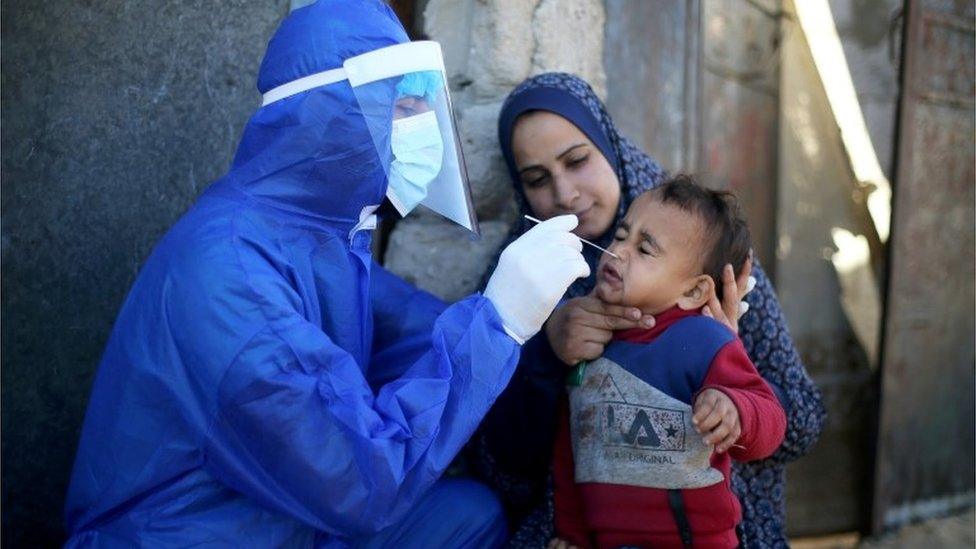Covid: Palestinians cancel vaccine swap deal with Israel
- Published

Elderly Palestinians are among those being vaccinated in the occupied West Bank
The Palestinian Authority has cancelled a deal under which Israel was to give it at least one million Covid vaccines.
The authority said the Pfizer jabs were too close to their expiry date.
Earlier, Israel said it didn't need an ageing stock of vaccines and they were to be used to speed up the Palestinian vaccination programme.
In return, the Palestinians were to give Israel a similar number of vaccines they are expecting from the Pfizer organisation later in the year.
Palestinian Authority Health Minister Mai Alkaila said they had been told the jabs would expire in July or August, but, when they arrived, the marked date was June.
"That's not enough time to use them, so we rejected them," she said.
However, Israel's health ministry denied this, saying the dates had been known, and agreed to, by the Palestinians.
"The vaccines delivered to the Palestinians are identical in every way to the vaccines currently being administered to Israel's citizens," it said.
Palestinian Authority spokesman Ibrahim Melhem said the initial delivery of about 90,000 doses failed to conform "to the specifications contained in the agreement, and accordingly Prime Minister Mohammad Shtayyeh instructed the minister of health to cancel the agreement".
"The government refuses to receive vaccines that are about to expire," he said in the statement carried by the official Wafa news agency.
Mr Melhem added that they would instead wait for the consignment of vaccines the authority had ordered directly from Pfizer.
Vaccines have expiration dates so they are not used after their strength diminishes. However, the World Health Organization has advised countries not to throw away any expired Covid-19 doses yet, as more research is being done into whether they could be viable for longer.
From January: Vaccine divides in the Middle East
In a tweet earlier on Friday, Israel's new health minister Nitzan Horowitz said that the "coronavirus knows no borders and does not differentiate between people".
He said that the "important exchange of vaccines" was in the interests of both sides and that he hoped for "co-operation between Israel and its Palestinian neighbours in other areas".
Israeli Prime Minister Naftali Bennett's office said "Israel has signed an agreement with the Palestinian Authority, and will supply approximately one million doses of Pfizer vaccine that are about to expire", without specifying the use-by date.
"Israel will receive the same amount of doses of Pfizer in September/October 2021, on behalf of what is destined for the Palestinian Authority," the Israeli statement read.
About 55% of Israel's overall population have been given both doses as part of a mass vaccination campaign.
The country reached a special deal with Pfizer-BioNTech, in which it provided vital medical data in return for a quick rollout of the vaccine.
Some 30% of eligible Palestinians in the occupied West Bank and Gaza have received at least one vaccine dose, according to Palestinian officials.
The Palestinians have already received vaccine doses from Israel, as well as from Russia, China, the United Arab Emirates and the global Covax vaccine-sharing initiative.
UN experts had been critical of Israel's failure to fully extend its vaccination programme to Palestinians under its control.
The Israelis said the Palestinians were responsible for managing health matters in the territories.
Correction and Update 9 July 2021: After this story was published, Israel issued a response to the Palestinians' rejection of the vaccinations, which has been added to the original article. An earlier version of this story also incorrectly stated that 55% of eligible Israelis - rather than out of the whole population - had received two doses of the vaccination and this line has been amended.
- Published22 March 2021

- Published31 January 2021
